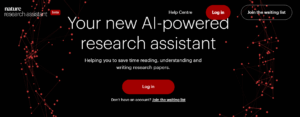This post follows on from Miracles of Artificial Intelligence and Artificial I.
The trigger was an intervention by Chris Dubey, who earlier this year wrote an article on ECT (electroconvulsive therapy – Shock Treatment) for the International Journal of Risk and Safety in Medicine, which was sent to me for review.
Most people, whether familiar or not with ECT, would figure Chris was offering a reasonable proposal. It was clear he had had some exposure to ECT and it had not helped, but rather than ask for it to be banned, his suggestion was to test it against other neuromodulatory treatments like Transcranial Magnetic Stimulation (TMS) – he didn’t mention the recent ‘Flow’.
Chris’ short, 500 word article with 18 references asked – if they did even nearly as well without the cognitive problems linked to ECT would it not be better to prioritise them? Dubey ECT Article 1 is linked here or available from DH if the link stops working.
Although saying it was pleasantly written, I rejected it. Healy Review 1 is linked here or available from DH.
These days journal Editors no longer take control of reviews. Instead algorithmic review systems ask a question – will you review this article again if it is revised and resubmitted. It is only when all reviewers lose the will to live and agree to accept or reject the article that the journal acts. This can run to the crack of doom.
I checked No – I would not re-review. I suggested the editor would have to make her own mind up. This probably happens automatically in journals these days without an editor getting to see that her reviewer has Just Said No.
Despite that a revision came my way for re-review. I almost deleted the email without checking but something stayed my hand. Later in a bored moment, pre-deleting I checked it out and was very surprised.
Asking Chat GPT, Co-Pilot, Anthropic and Grok for their input, Chris had fed them his original article along with 3 reviews, mine and two favorable reviews except one criticized him for not calling for ECT to be banned.
The published revision, Dubey ECT Article 2 which is here, had doubled in length and had 81 references or available from DH.
The draft for re-review also came with a marked up copy of Grok or Chat GPT’s suggestions with the reasoning behind them. These are also available from DH.
Chris’ resubmission also had his response to my point about the Sins of Psychiatry. It seemed to me his response boiled down to if there is a risk that surgeons might take out the wrong kidney we need to stop all kidney operations.
This fails to appreciate the practice problems in all of mental health and perhaps health which lead to psychotherapists recovering memories of abuse that never happened and SSRI drugs likely being as safe or safer over the counter as they are on prescription only. See Health Care and Science – for more on this.
As an article about ECT, Healy Review 2 I- here or available – I rejected it again.
But was it an article about ECT or an experiment with AI? I wrote to Chris.
Dear Christopher Dubey
I am reviewer 1 on the original ECT article you submitted to the International Journal of Risk and Safety in Medicine. Liliya Ziganshina, the editor of IJRSM, is copied into this email, along with one of her colleagues Axana Scherbeijn.
With Liliya’s permission, I have a proposal to make you. A proposal but not an offer. Liliya (and the journal) will need time to consider the options.
My suggestion is the journal publish your original article as submitted, along with your revised article. I will ask a well-known expert in ECT to draft a complementary article to your original article, specifically telling them to be collegial rather than hostile, roughly the same length and turned around quickly. Once they submit that I will critique it. Without being told or seeing your revision. the second author will be invited to do as you did and let Anthropic and GROK digest the second article and the review and help it its revision.
Why do this?
Clearly A.I. has some great things to recommend it. But the question is whether it will aim at writing something it thinks you on one side and the second author on the other want. Will it support rather than challenge each of you?
ECT is perhaps the most divisive treatment in medicine and as such ideally placed to explore what A.I. does. The results might be very different in this case compared with a scenario in which it was dealing with a topic on which there is a degree of consensus.
If things turn out roughly as I expect, the benefit for you is that you get two articles published and likely a considerable impact factor given current interest in A.I. This should be good for both you and the journal.
If you are open to this option, can you reply to all of us with your thoughts. I would also need a summary of what you did to get Anthropic and GROK to review your article – did you enter and article and reviews and what instructions did you give the system? We will need to give the second author similar instructions.
We didn’t quite keep to this format but Chris and the journal agreed to the proposal, which led to the 2 Dubey articles and 2 Healy reviews – and to a final comment – See Healy and Ziganshina ECT 3 – picking up the implications of AI from a journal perspective.
After the Deluge
The post is superficially about ECT, the Artificial I post is superficially about Transgender issues, and the Miracles of Artificial Intelligence is superficially about RSV Vaccines. The blink and you’ll miss it point is that if you weren’t there, you didn’t get a chance to spot the Elephant in the Room and the Probity Blocking process that has erased all traces of an Elephant from photos of past events or the history of the times.
As Milan Kundera’s The Book of Laughter and Forgetting fabulously illustrates, we expect disappearances like these in politics, especially authoritarian politics. We don’t expect it in Science.
Having interviewed many pioneers in neuromodulation, I know they tested their new techniques on severe cases, found they didn’t work, but never published the results, opening a door to anyone who wanted to make money from neuromodulation in a wellness rather than illness domain. We now have an increasingly messy wellness domain with puberty blockers being given to pre-teens, scaremongering about relatively harmless RSV infections, neuromodulation promising better than well outcomes with no cognitive problems and psychotherapies curing everything, along with paid but authentic influencers and lifestyle coaches – see Authenticity Inc – for all of which there is a clear demand.
AI cannot get hold of innocently or deliberately unpublished knowledge, or what might lie behind fraudulently transformed knowledge. This applies to the psychotherapies as much as physical therapies – see Health, Care and Science – and even more to psychotropic drugs.
In the short terms AI will make things worse. The extraordinary events surrounding Giovanni Fava and Psychotherapy and Psychosomatics bring the risks home. Put in place by companies like Elsevier who make $3.5 billion per year from their journals, business editors have replaced clinical editors. Algorithmithizing everything and dispensing with as much human judgement as possible appeals to businessmen.
As a ‘sub-editor’ on a Nature journal for years, I was increasingly sent articles that had nothing to do with my domain expertise, for which I had to find reviewers. When I queried this, I was told the journal was putting an algorithm in place to suggest reviewers and all I had to do was send the article to them. Why not dispense with us, I asked, and just have the algorithm generate the product and pass it to an editor in chief?
Nope – legally we have to have a human in the process. Frontier and Nature Journals (like Cureus) now all operate this way. The de facto goal is to have no humans. It makes perfect business sense to have an AI screen of incoming articles – to reduce the very real burdens on notional humans.
A colleague recently submitted a brief rushed article on a potential SSRI benefit for vision which was instantly accepted. He also wrote a better, more detailed and substantial, article on a potential SSRI vision problem, which was rejected serially by journals without review. He was mystified.
Another colleague, Mayer Brezis, wrote an important article on Finasteride and Suicide, which he sent to a BMC journal. The reviews were broadly favorable but when he resubmitted it, it was rejected without further review or appeal. Other colleagues have had similar experiences recently. All it takes is one less than extravagantly praising review to cause the system to seize up and make some central editor decide to chuck the article.
RxISK this week features a post by a colleague marking the publication of an important article on SSRIs and Visual Snow. The post hints at a saga behind this article’s publication.
The first journal we sent it to claimed our article “did not have a high enough priority score to be sent out for external review”. Ditto for a second journal. A third submission is still languishing in BMC Ophthalmology where it was submitted over a year ago. BMC claim not to be able to find reviewers.
We switched to the International Journal of Risk and Safety in Medicine, who as the name suggests are a natural home for treatment linked adverse events – as long as the algorithms don’t get them.
As journals put algorithms in place, a minimal unwitting inclusion in the specification could rule out articles unlikely to come with open access fees or unlikely to lead to a good for business adoption of a new technique (articles about benefits). I emailed my prior, always very pleasant, Nature contacts asking if “did not have a high enough priority score to be sent out for external review” might point to an algorithmic glitch that might make publishing about adverse events increasingly difficult? He said – no this couldn’t happen.
Although a prior Nature-ist, very soon afterwards, I unexpectedly got a delicious Nature email inviting me to test their (my) new AI Research Assistant. Logging in gave the quotes to die for that feature in Healy and Ziganshina – all the little red dots you see in the image below are on the move In Real Life. Great quotes and red dots – what could be better?
With thanks to Chris Dubey who set this process rolling. The links above should work but if not, I (david.healy54@gmail.com) can send these AI/ECT articles and reviews with or without an important Visual Snow article.
Chris’ experiment with Chat GPT, Grok etc was my first exposure to what can be done. It is now clear any of us can do similar things. With what consequences?
AI and Homicide
The issue of psychotropic drugs triggering violence/homicides is a key concern for RxISK.org and many people injured by psychotropic drugs. Just a few days ago, a colleague found an Armed with Reason substack with a linked Gun Violence Pedia (GVPedia), who, deploying AI technologies/techniques, seem to have a mission to brand any idea that homicides with a gun might be linked to psychotropic drug use as a complete (NRA sponsored) myth aimed at deflecting attention from the guns themselves.
A divide that AI has the potential to turbo-charge is opening up across which may be unbridgeable. At the moment, megaphone diplomacy seems to be getting us nowhere. Neither democracy nor science can survive divides like this.


Leave a Reply